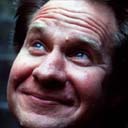
The Adelaide festival is widely regarded as the most prestigious annual arts celebration in Australia, and has nurtured a tradition of hiring artistic directors from the northern hemisphere; Lord Harwood and John Drummond are among those who have worked there in the past. But the latest north-south collaboration appears to have ended in tears, with the American stage director Peter Sellars resigning from the 2002 festival just a couple of weeks after his plans were made public.
Sellars's programme for the 10-day event next March was announced at the end of last month. He was not present at the press conference, apparently because he was working in Paris, and in his absence his plans immediately came under attack in the Australian press for their lack of broad-based appeal. The emphasis of his programming was on all-embracing multiculturalism: the opening ceremony was to be an Aboriginal celebration, and another massive dance piece featured the Aboriginal tribe on whose ancestral land the city of Adelaide is built, as well as groups of indigenous people from around the world. There was also a programme of indigenous Australian film- making. Even in a country that is now trying hard to atone for its historical treatment of its aboriginals, it seems, this was all too much, and certainly not the kind of international-class programme of music, theatre and dance with which the Adelaide festival made its mark.
A TV commercial for the festival, apparently approved by Sellars, hardly helped matters. It showed a likeness of Hitler superimposed on the bodies of four well-known artists, and a voice-over suggesting that had Hitler become an artist as well, then the Holocaust might have been avoided. The ad was censored before it could be broadcast. Leading Australian arts organisations were soon joining in the criticism, complaining that Sellars had seen fit to programme John Adams's nativity oratorio El Nino (text assembled in collaboration with Sellars, original production directed by Sellars) as one of the few conventional "high art" events, and included very little of such work that was home-grown.
Events came to a head this week when Sellars finally gave in to pressure and announced that he was leaving his post with immediate effect, saying he felt his continued presence was "an impediment to the realisation of the 2002 Adelaide festival". He admitted that he had made his "share of mistakes since coming to Adelaide". Evidently the board of the festival had asked him to broaden the appeal of his programming, but had refused him any extra funding to make the changes, leaving him no alternative but to go. There are rumours now that El Nino will be cancelled.
It is a sad story, which seems at 9,000 miles' distance to be about mutual misunderstanding as much as anything else. Anyone who is aware of Sellars's political preoccupations, or has any knowledge of what he presented when in charge of the Los Angeles festival in the early 1990s, or has seen his recent stage work, would not have been in the least surprised that his plans for Adelaide were very much concerned with the rights and culture of minorities and with promoting community relations. That is the package you get when you hire him.
For his part Sellars seems to have misjudged his audience, and not attempted to find some balance between his own artistic and political beliefs and the expectations of the festival's core constituency. In a country still self-conscious about - and protective of - its own musical culture, programming John Adams at the expense (or so it might seem) of a similarly large-scale work by a homegrown composer was a major faux pas. Though Sellars himself would be horrified at the suggestion, it could be construed as northern-hemisphere cultural imperialism of the crassest kind. Giving him a free rein in an event that has so much local cultural prestige loaded upon it was perhaps asking for trouble; Sellars is an extraordinary, charismatic figure in contemporary theatre, but Adelaide really needed somebody less likely to rock the boat.

